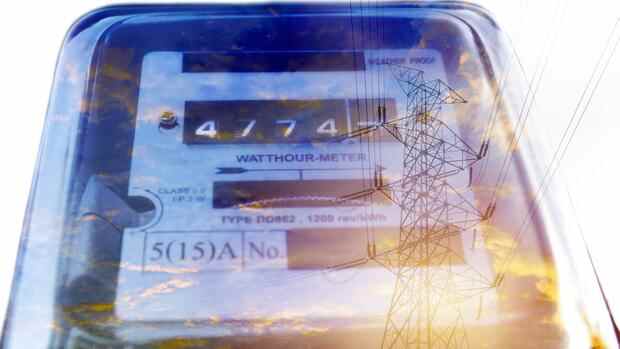A whole series of innovations are necessary, which are repeatedly delayed.
Absurd things are happening in connection with the energy transition. More than nine million German households have already received a digital electricity meter instead of the black box in their basement. But this is only an interim solution on the way to a green future. The first digital meters are already being removed and replaced by more intelligent devices. That means: twice the work, higher costs, lost time.
The process is symptomatic of the energy transition. Everyone is looking at the big picture: whether Germany will make progress with the expansion of wind turbines, when the EEG surcharge will be abolished, how important gas-fired power plants are as a transitional technology. What is often overlooked is that the success of the energy transition is also decided in the small things, in less visible issues. The fact is: the power grid must become more intelligent. This includes a whole series of innovations that are repeatedly delayed. And here there is great chaos in many areas.
An example is the digital electricity meter. The discussion about the new electricity meters, the so-called smart meters, has been going on for more than ten years. The devices should help to control solar systems on roofs, heat pumps and electric cars in such a way that they relieve the power grid instead of burdening it.
But it took years before the intelligent measuring systems were even declared data-secure and ready for the market. And even now there are still critical voices who consider the current devices to be unsuitable for making a sustainable contribution to the energy transition.
Top jobs of the day
Find the best jobs now and
be notified by email.
At the same time, it has not been clarified how so-called controllable consumers are to be integrated into the power grid. For example, it is about using the batteries of electric cars to stabilize the power grid in the future. For example, by temporarily interrupting the charging process. Or by letting the car charge when there is a lot of electricity left in the grid.
Without intelligent solutions, there is a risk of expensive grid expansion in many places
At the beginning of last year, the car lobby association VDA, as well as consumer advocates, railed against the Controllable Consumer Equipment Act, which was intended to lay down rules for such options. They feared that e-cars would simply be disconnected from the power supply at inopportune moments. Former economics minister Peter Altmaier canceled the draft at the last minute and it disappeared into a drawer.
Economics Minister Robert Habeck urgently needs to open this drawer again, because if e-cars do not help to stabilize the grid, there is a risk of expensive grid expansion in many places. And the intelligent control of e-cars could also be regulated without a threatening shutdown scenario, for example through financial incentives.
And there are other problems: Not only do consumers with electric cars pose a threat to the power grid without new solutions – it is also necessary to regulate new feeders such as solar systems and wind farms. If there is too much electricity in the grid because it is particularly sunny or windy, you have to feed in less.
>> Read here: Infrastructure under pressure: German electric cars charge too slowly
So far, such rules only apply to larger, conventional power plants, but now wind farms and solar systems are also to be included in a process called Redispatch 2.0. But even this innovation is faltering. The market launch of the new measures was actually scheduled for October 1, 2021, but there is now a transitional phase until the end of May.
So there is a whole series of fundamental problems whose solution is being delayed more and more. While the new federal government is making speed on the issues of phasing out coal, wind and solar expansion, things are not progressing fast enough on the less visible but fundamental issues.
The discrepancy between the ambitious climate plans and the slow conversion of well-established processes is increasing. If the new federal government wants to achieve the goals it has set itself, it will have to adapt the rules, even if they seem small, and finally tackle the necessary changes with determination.
More: The ultimate threat: Russia has the upper hand in the fight for gas – for now.
